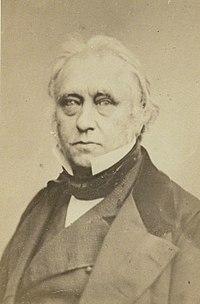
- 22 Nov 2022
- 1019 views
- 6 posts
Thomas Babington Macaulay was born in Leicestershire, England on 25 October 1800, the son of a former African Colonial Governor and anti-slavery activist.[1]
Elected to the House of Commons of the United Kingdom in 1830 as a member of the reformist Whig party, four years later Macaulay was named as an inaugural member of a governing Supreme Council of India.[1] Macaulay spent the next four years in India, where he devoted his efforts to the reform of the criminal code of the colony and the establishment of an educational system based upon the British model.[1]
Macaulay held the indigenous culture of the Indian peoples in low esteem and saw his as a civilizing mission: “We must at present do our best to form a class of persons Indian in blood and colour but English in tastes, in opinion, in morals, and in intellect,” Macaulay declared.[2]
Not only was the English form of educational instruction directly imported to India under Macaulay’s watchful eye, but the English language was established as the sole vehicle of instruction. It was hoped to establish a new cultural elite in the colony and that the ideas of this new English-speaking and British-educated group would “filter downwards” into Indian society.
“Macaulayism” and modern India
In the independent nation of India which emerged in the second half of the 20th century, Macaulay’s name has become emblematic for the ills of colonialism. Macaulay and the British education system have been blamed for producing a generation of Indians not proud of their distinct heritage.[3]
Speaking at a national seminar on “Decolonizing English Education” in 2001, professor Kapil Kapoor of Jawaharlal Nehru University declared that one of the byproducts of mainstream English language education in India today has been its tendency to “marginalize inherited learning” and to have uprooted academics from traditional Indian modes of thought, inducing in them “a spirit of self-denigration (heenabhavna).”[4]
Author Rajiv Malhotra has bemoaned the “continuation of the policy on Indian education started by the famous Lord Macaulay over 150 years ago” for the virtual banishment of classic Indian literature from the country’s higher academic institutions and the emergence of a “new breed” of writers professing a “uniquely Indian Eurocentrism.”[5]
Vestiges of Macaulayism are also seen by many Hindu nationalists as a mechanism of British neocolonial control in India.






























